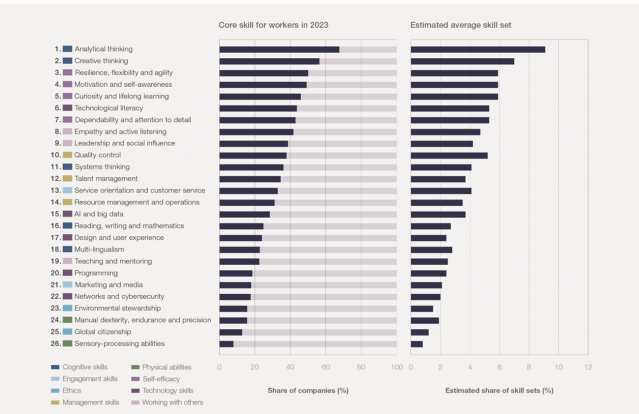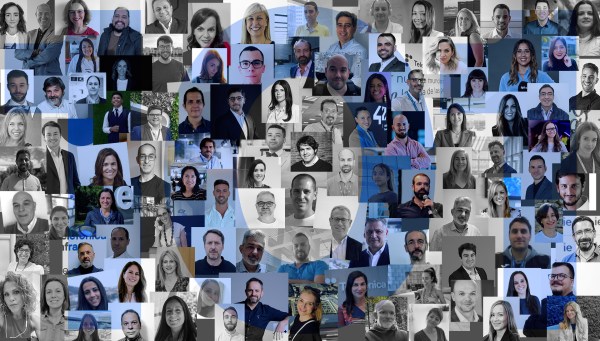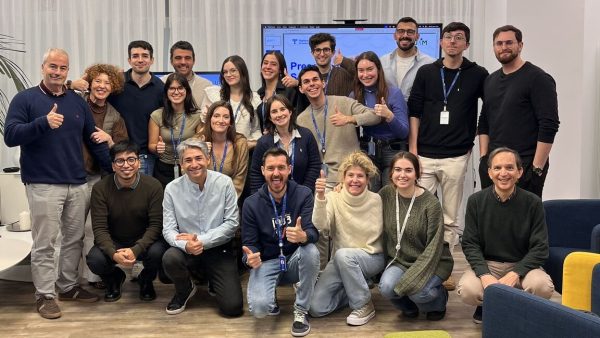A few days ago, as part of my project on the B2B Sales Podcast, I had the opportunity to chat with Belén Torregrosa, a communications expert. Our conversation turned around the following question: what will be our value when Artificial Intelligence replaces us in many of the tasks we perform?
All the arguments put forward by Belén led us to the same conclusion: the key lies in soft skills, i.e. in those specifically human skills that, at present, cannot be replaced by any machine.
Before continuing, it is worth remembering what soft skills are. While the so-called hard skills are those technical skills that define us as experts in a subject and that we achieve with training and practice, soft skills are those transversal skills that we can all develop and improve and that do not require training, for example, adaptability, empathy, creativity, resilience, or critical thinking.
The role of technology and artificial intelligence
We find ourselves in a world where technology is increasingly present, where digitalisation is permeating everything and where knowledge of such technology is crucial. But it seems that, with AI, softs kills are going to take on a special role.
What is really happening is that the evolution of AI and the fear of how it will affect the future of work is reinforcing a long-standing trend. Until about 1990, the prevailing belief was that hard skills were more important than soft skills. Companies, universities, business schools and even the OECD’s own PISA report assessed only the technical ability of candidates. But this trend has been changing for some time now and certain non-technical skills are increasingly valued.
For example, in 2008, Google conducted a study called Project Oxygen to understand the strengths behind the success of some of its employees. The results revealed that more than their technical knowledge, the qualities that made them stand out were: mentoring skills, communication skills, being open to different points of view, empathy, critical thinking, problem solving and being able to make connections, all ahead of STEM skills.
From Google itself we have another example that can refute this situation: Googliness can be defined as the set of values and characteristics that all Google employees share and that go beyond their technical skills. In other words, they are skills that are especially valued in the company as a common culture and which include, for example, whether they practice sports or are able to work easily in a team.
The OECD study, Future of Education and Skills 2030. Conceptual Learning Framework published in 2018 confirms the fact of continuous technological change which in turn demands changes in the labour market and requires new technical skills, but it is the ability to solve problems that it considers key to the success of this transformation.
And suddenly, in 2023, we are experiencing the explosion of Artificial Intelligence. Earlier this year, the World Economic Forum made the following prediction: “42% of the tasks we carry out in our daily lives will be automated by 2027, with artificial intelligence (AI) being the innovation that will contribute most to job displacement“.
Also in 2023, the latest report The Future of Jobs was published, analysing which skills are considered essential for work. As we can see in the following table, these include analytical thinking, creative thinking, followed by resilience, motivation and curiosity…

Source: World Economic Forum, Future of Jobs Survey 2023
At the January 2024 edition of the World Economic Forum, AI was one of the main themes of the meetings. Its great potential to improve productivity was recognised. And in the face of this potential, the challenges and dangers that we must address with this technology were also exposed.
What about jobs?
Following on from the 2023 predictions, in addition to a strong interest in skills related to AI and Big Data, the skills that are considered essential for the future of work are two: critical thinking and creativity.
It seems that the situation and the future are more or less clear, but now other questions arise: are states and companies committed to the development of these skills; how are they doing it; is the development of these soft skills going to be homogeneous or are there going to be gaps?…Of course, this is enough for another article.









